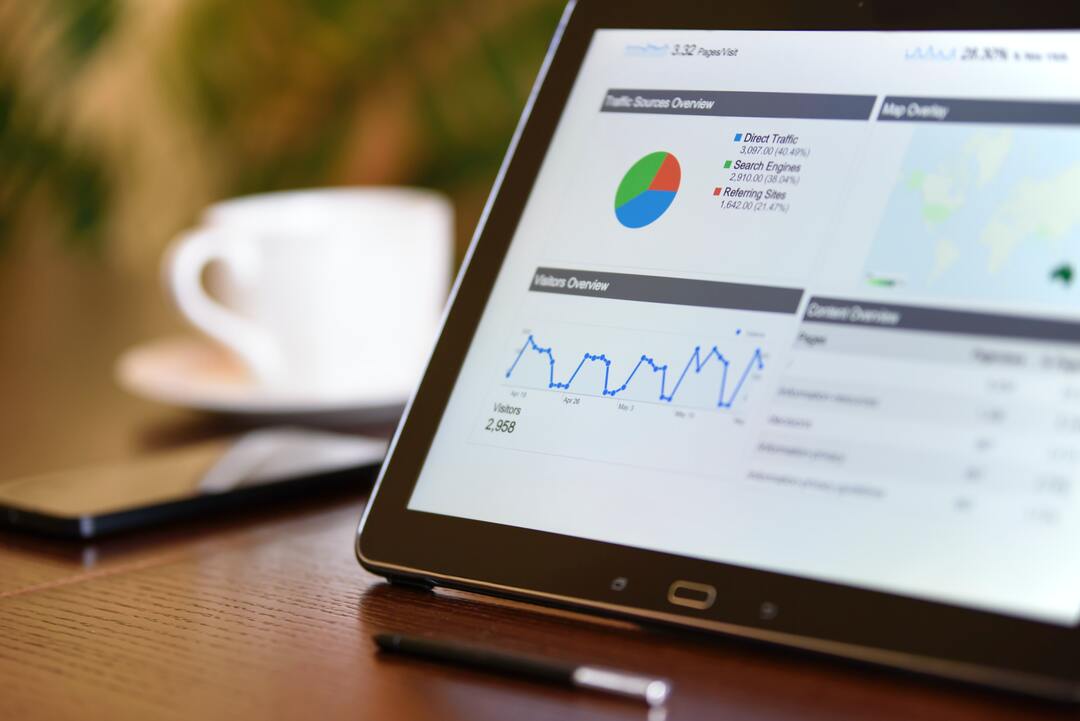Data analytics is the process of using statistical and computational methods to extract insights and knowledge from data.
This process involves gathering, cleaning, organizing, and analyzing data to identify patterns and trends that can help businesses make informed decisions.
The insights gained from data analytics can be used to optimize operations, reduce costs, increase efficiency, and grow revenue.
The Importance of Data Analytics
- Better decision-making
- Improved efficiency
- Competitive advantage
- Risk mitigation
- Personalization
Better decision-making
Data analytics provides businesses with a wealth of information that can help them make better decisions.
By analyzing data, businesses can gain insights into customer behaviour, market trends, and industry developments, allowing them to make informed decisions about product development, marketing strategies, and resource allocation.
For example, a retail business can analyze sales data to identify which products are selling well and which are not.
This information can be used to make decisions about product offerings, pricing strategies, and inventory management.
Similarly, a marketing team can analyze customer data to identify which channels are driving the most traffic and conversions.
This information can be used to optimize marketing campaigns and allocate resources more effectively.
Improved efficiency
Data analytics can help businesses improve their efficiency by identifying areas of waste and inefficiency.
By analyzing data on production processes, supply chain management, and employee productivity, businesses can identify areas that can be optimized to reduce costs and increase productivity.
A manufacturing company can use data analytics to identify bottlenecks in production processes and take actions to optimize them.
Similarly, a logistics company can use data analytics to optimize delivery routes and reduce fuel costs. By using data analytics to improve efficiency, businesses can reduce costs and increase profitability.
Competitive advantage
In today’s competitive business landscape, companies need to stay ahead of their competitors to succeed.
Data analytics can help businesses gain a competitive advantage by providing them with insights into customer behaviour, market trends, and industry developments.
By analyzing this data, businesses can identify opportunities and take action to capitalize on them before their competitors do.
A retailer can use data analytics to identify emerging trends and adjust their product offerings accordingly.
Similarly, a financial services company can use data analytics to identify new customer segments and develop products tailored to their needs.
By using data analytics to gain a competitive advantage, businesses can stay ahead of their competitors and grow their market share.
Risk mitigation
Data analytics can also help businesses mitigate risks by identifying potential threats and taking actions to prevent them.
By analyzing data on customer behaviour, businesses can identify patterns that may indicate fraudulent activity or other risks.
This can help them take preventative measures to minimize the impact of these risks on their operations.
For example, a bank can use data analytics to identify suspicious transactions and prevent fraud. Similarly, a healthcare provider can use data analytics to identify patients who are at risk of developing chronic conditions and take action to prevent them.
By using data analytics to mitigate risks, businesses can protect their operations and reputation.
Personalization
One of the most significant benefits of data analytics is its ability to personalize customer experiences.
By analyzing customer data, businesses can gain insights into their preferences, behaviour, and needs.
This can help them tailor their products and services to meet the specific needs of each customer, resulting in increased customer satisfaction and loyalty.
An e-commerce company can use data analytics to personalize product recommendations and promotions for each customer. Similarly, a hotel chain can use data analytics to personalize room offerings and amenities for each guest.
Conclusion
The importance of data analytics cannot be ignored for businesses that want to stay competitive and make informed decisions.
By analyzing data, businesses can gain insights into customer behaviour, market trends, and industry developments, allowing them to make informed decisions about product development, marketing strategies, and resource allocation.
Data analytics can also help businesses improve efficiency, mitigate risks, personalize customer experiences, grow revenue, reduce costs, and improve customer satisfaction.
With these benefits, it’s clear that data analytics is an essential component of any business decision-making.










